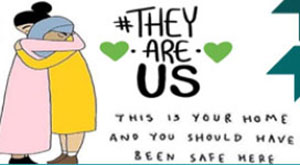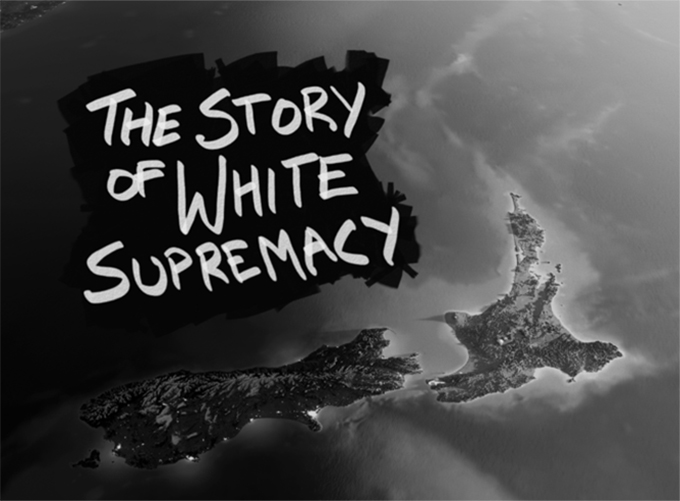COMMENTARY: By William Ray
Since the mosque attacks in Christchurch earlier this month, many people have called for New Zealand to examine its history of white supremacy. In this special episode of RNZ’s Black Sheep, William Ray looks at the origins of this ideology, how it warped and changed over time, and how people have fought against it.
I missed the Christchurch shooting.
My girlfriend and I were out walking the Routeburn Track that weekend. Swimming in Lake Mackenzie, watching kea stalk unattended backpacks, listening to tourists gush about how beautiful and lucky and peaceful this country is.
On the Saturday afternoon we were picked up by a bus on the Milford/Te Anau Highway. The driver knew we’d all been out contact with the outside world, so she made an announcement over the intercom:
“I’ve got some really bad news for everyone.”
I don’t remember exactly what she said after that.

As soon as we got back into cellphone range my girlfriend loaded up a Reddit thread about the shooting which I read over her shoulder. There was one post which really stuck out at me:
“This is not what New Zealand is. New Zealand is a land of peace where all, regardless of race and religion are welcome. Violence, racism, and discrimination are not welcome and do not define who or what New Zealand is.”
I get what that person was trying to say but for the past three years on Black Sheep I’ve been looking at violent, racist, discriminatory New Zealanders.
John Bryce, the racist Native Affairs Minister … James Prendergast, the Supreme Court Justice who said the Treaty of Waitangi was a “simple nullity” … Roy Courlander, the New Zealand soldier who literally joined Nazi Germany’s Waffen SS.
And many, many, more.
Significant force
These people don’t define New Zealand, but they do represent a significant force in New Zealand history.
White supremacy.
In this special episode of Black Sheep, we look at the history of New Zealand through the lens of white supremacy.
We look at how the ideology influenced the voyages of Tasman and Cook, how it was used to justify the worst atrocities of the New Zealand Wars, and how it found new targets in New Zealand’s non-British migrant communities.
We also look at how some Pākeha fought to oppose this ideology and ask some tricky questions about what that dissent means for how we think about racist New Zealanders of the past.
If you want to know more about the more recent history of Islamophobia we highly recommend subscribing to RNZ’s Public Enemy podcast
You can also find out more by looking at the huge amount of work which has been done by our guests:
- Dr Leonie Pihama
- Professor Manying Ip
- Pro Vice Chancellor (Pacific) Damon Salesa
- Mark Derby
- Dr Scott Hamilton
- Distinguished Professor Paul Spoonley
This story was republished under the Pacific Media Centre’s content partnership with Radio New Zealand.














































